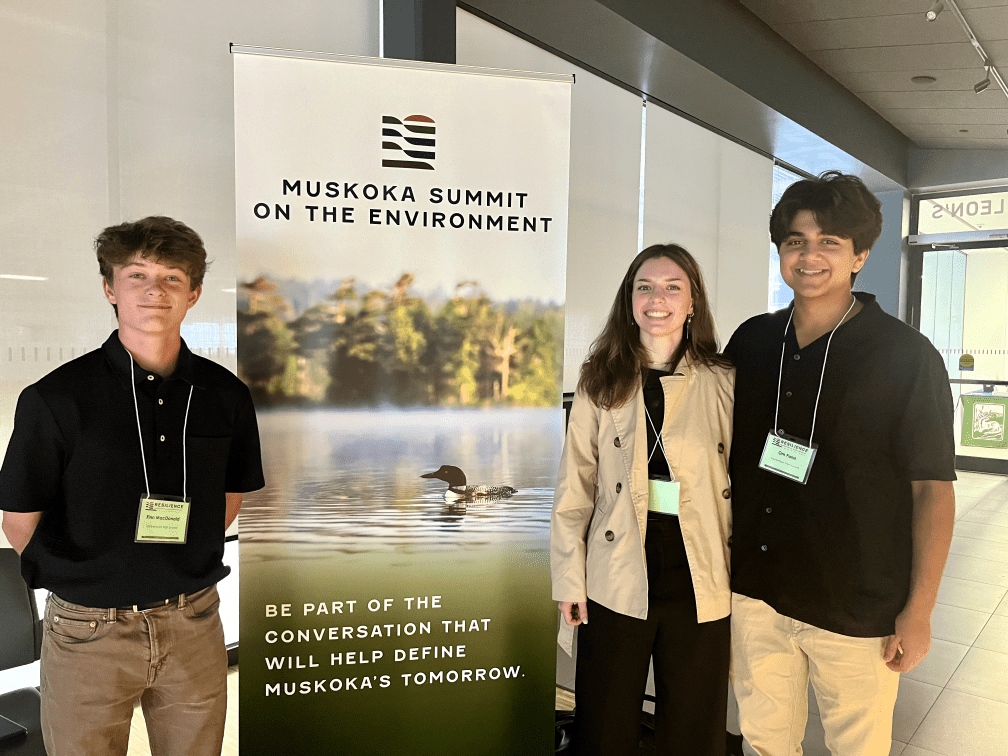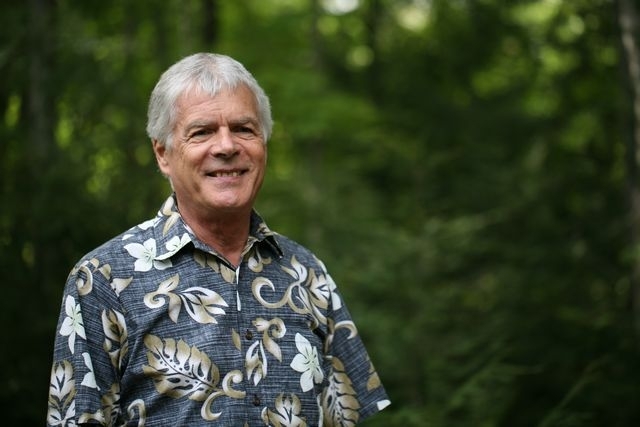It really is possible to take proper care of the Muskoka we love?
By Peter Sale.

Those of us who attended the 6th Muskoka Summit on the Environment in Bracebridge on October 4th got to enjoy something rare — a whole day of learning about environmental issues without the doom and gloom so often present. The theme was Resilience — of our wonderful natural environment and of our society and our economy. The delightful venue at the new Muskoka Lumber Community Centre and expert catering by Lake of Bays Brewery added to a fun day.
These days, when so many environmental issues tend to be getting worse, it is easy to fall into the trap of bewailing all that is going wrong, while looking for people to blame. Yet for many environmental problems the people to blame are all of us, and heaping blame on neighbours does not create solutions!
Dr. Blair Feltmate, from the University of Waterloo’s Intact Centre on Climate Adaptation, grabbed our attention with his opening line: “Climate change is going to get worse. We cannot stop it. What we can do is learn how to adapt to the problems it is causing.”
How refreshing. Forget what’s past; let’s act to prepare ourselves for the storms we know are coming while continuing to push for international effort to reduce emissions and lessen future changes.
Dr. Deborah McGregor, Anishinaabe scholar and Indigenous knowledge systems expert at York University, pointed to some simple truths that have guided Indigenous stewardship for thousands of years. “We cannot manage water; we can only learn how to live with water” and “Water is a relative of ours. We depend on water for our lives. Wise stewards treat water with humility and respect.”
Dr. Shawn Watmough from Trent University described the complexity of the interconnections within a watershed such as ours, and how these interconnections are altered by human activities such as logging, farming and construction. Unexpected, sometimes counterintuitive, changes now being made worse by climate change, but he went on to show how we can sometimes repair damage by making small changes in our lives. Yes, the ash program developed by Friends of the Muskoka Watershed really works to fix an environmental problem we have caused.
Speaker Margaret Birch, from Coquitlam B.C., described how her community had come together — managers, fishing and power generation industries, municipalities, First Nations and community groups — to build an effective stewardship program for the Coquitlam River Watershed. Like-minded people, working together toward shared goals can achieve great things, and their success can be replicated here.
During the day we also heard from four high school students who were passionate in their love for Muskoka and their desire to steward this special place successfully into the future. These, after all, are the people who will live with the environment we are causing to come to be over the next few years. Their enthusiasm gave me hope that together we can make a difference.
There is much work to do. At present, our wonderful environment becomes a little less wonderful every year. It degrades in multiple ways, and existing policies and procedures for environmental management are insufficient to repair this deterioration. So if we want our natural environment to remain high quality for the next seven generations we have to put enhanced policies in place. This will require humility, new understanding, intelligent action, and respect for all those wonderful species that deserve to live here just as much as we do — as we nurture this ecosystem responsibly.
Article originally published on MuskokaRegion.com on November 16, 2024.

This article is the first in a new series, First Steps on the Path to IWM, that will explore how we can take the first steps on the road from here to that wonderful place where our society and economy prosper, surrounded by a natural environment that also prospers. It will be a long journey that we must take together. The 2024 Summit was a small step forward, building understanding of the need and the urgency. Time to get moving.
Peter Sale is an aquatic environmental scientist and director and past chair of Muskoka Watershed Council.
